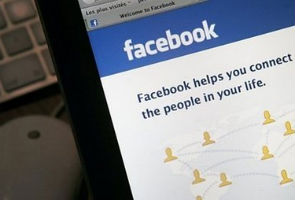
France's audiovisual authority says that TV and radio stations that promote their sites on the two gargantuan social media services on air are actually engaging in secret -- and unfair -- advertising.
Some French bloggers, bemoaning that their country seems out of touch with the Digital Age, pilloried what it considered an antiquated stance.
On May 27, the Superior Audiovisual Council, or CSA, said that broadcasters could legally point viewers or listeners to their sites on generic "social media" but they may not cite services like Facebook or Twitter by name.
The CSA said Monday that Facebook or Twitter could be cited only when a report or program merits a specific reference to those sites.
"We are not in the United States where you buy frequencies to get a TV channel and then you do pretty much whatever you want on your channel," said Christine Kelly, a member of the council.
In France you don't buy the frequency but get one for free and in exchange "there are rules you must respect," Kelly told Associated Press Television News.
Among the rules is a 1992 decree on combatting secret advertising on radio and television.
The pronouncement went largely unnoticed in traditional media until bloggers -- many of them critical -- picked up on it.
It came soon after President Nicolas Sarkozy hosted Facebook co-founder Mark Zuckberberg and other Internet magnates for a conference on how much to regulate the online world.
France has long had a reputation as tough on cyberspace, notably in efforts to protect copyrights. It was not immediately clear whether other countries maintain similar airwave bans about references to Facebook or Twitter.
In its one-paragraph statement in response to a query from an unspecified broadcaster, the audiovisual regulator said specific references to the social networking sites would violate the 1992 law banning secret advertising.
It argued that redirecting viewers to generic social media instead would still be "informative" without plugging a specific site.
A CSA spokeswoman, who said she could not be identified by name because of agency rules, noted some networks often blur out the images of corporate logos in the backdrop of TV shots to avoid secret advertising.
Kelly, of the CSA, said that radio stations, in particular, were "a bit surprised" by the reminder "because it's mainly the radio stations" which were citing Twitter and Facebook.
France's leading TV channel, TF1, refused to comment on the issue, and Facebook's office did not immediately respond to a request for comment.
Loic Le Meur, a French blogger who once advised President Nicolas Sarkozy on Internet policy, lambasted the decision. "French regulation forbids TV networks to say Facebook or Twitter? My Country is screwed," he wrote on Twitter.
Sarkozy has embraced some social media sites, and some 450,000 people "like" his Facebook page. He is generally in favor of more Internet regulation, not less.
The CSA, created in 1989, is charged with ensuring fairness on French audiovisual communication, such as TV time granted political candidates, and with the protection of children from some types of programming.


No comments:
Post a Comment